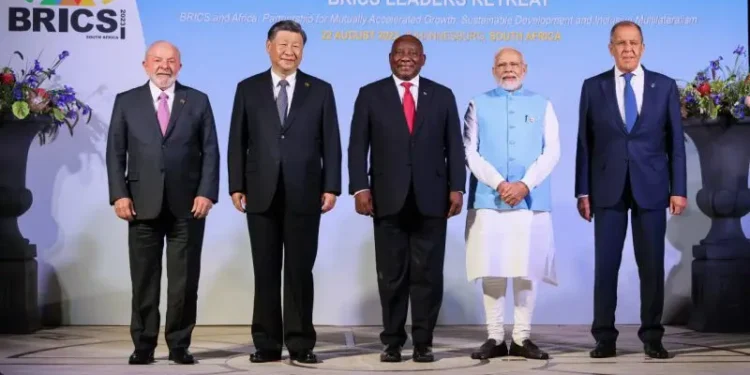In a bold move that could reshape the landscape of global finance, BRICS Officially Announces Financial System Similar to SWIFT. This development, revealed on July 26, 2024, marks a significant step in the group’s efforts to challenge the dominance of Western financial institutions and reduce reliance on the US dollar. The initiative, spearheaded by the nine-member alliance, has the potential to alter the dynamics of international trade and monetary policy.
The BRICS alliance, comprising Brazil, Russia, India, China, South Africa, and four new members, has long sought to increase its influence in the global economic order. The decision to create a SWIFT-like system is a concrete manifestation of this ambition. SWIFT, or the Society for Worldwide Interbank Financial Telecommunication, currently serves as the primary network for processing cross-border financial transactions. By developing an alternative, BRICS aims to gain greater autonomy in international trade and reduce vulnerability to Western-led financial sanctions.
Deputy Chairman of the Russian State Duma, Alexander Babakov, elaborated on the initiative, stating, “The financial agenda of BRICS has a main initiative for building a new economic reality that solves both major tasks. Creating our own financial messaging system for the BRICS countries, similar to SWIFT, based on state-owned banks capable of clearing settlements of counterparties from the BRICS countries and the related role of the same bank.” This statement underscores the strategic importance of the project for the alliance.
The proposed system is expected to facilitate transactions using local currencies, potentially diminishing the role of the US dollar in international trade. This move aligns with the broader de-dollarization agenda pursued by several BRICS nations. By reducing dependence on the dollar, these countries hope to insulate themselves from US monetary policy decisions and potential economic sanctions.
However, the implementation of such a system faces significant challenges. Ensuring technical compatibility with existing financial infrastructures in participating countries is crucial. The new system must seamlessly integrate with national payment systems, banks, and other financial institutions. Moreover, maintaining a high level of security and data protection is paramount to prevent cyber-attacks and unauthorized access to sensitive financial information.
The impact of this initiative could be far-reaching. If successful, it could alter the balance of power in global finance, potentially affecting various sectors in the United States and other Western economies. The move might also encourage other nations to seek alternatives to the current dollar-dominated system, further fragmenting the international financial landscape.
Critics argue that creating a parallel system could lead to increased financial fragmentation and reduced global economic integration. There are also concerns about the technical feasibility and adoption rate of the new system, given the entrenched position of SWIFT in global finance.
Proponents, however, see this as a necessary step towards a more multipolar world economy. They argue that diversifying global financial systems can lead to greater stability and reduce the risk of systemic shocks emanating from a single dominant currency or system.
The announcement has already sparked discussions among financial experts and policymakers worldwide. Many are closely watching how this initiative will unfold and its potential implications for global trade, currency markets, and geopolitical relations.
As the BRICS nations move forward with this ambitious project, they will need to address several key issues:
- Technical infrastructure: Developing a robust and secure system capable of handling large volumes of international transactions.
- Regulatory framework: Establishing clear rules and standards for the new system that comply with international financial regulations.
- Adoption and acceptance: Encouraging widespread use of the system beyond BRICS nations to ensure its viability and effectiveness.
- Interoperability: Ensuring the new system can interact seamlessly with existing financial networks to facilitate global trade.
- Security measures: Implementing state-of-the-art cybersecurity protocols to protect against potential threats and maintain trust in the system.
The success of this initiative could potentially reshape the global financial landscape, offering an alternative to the current Western-dominated system. However, its implementation and wider acceptance remain to be seen.
The BRICS Officially Announces Financial System Similar to SWIFT marks a significant milestone in the group’s efforts to reshape global finance. As the project moves from concept to reality, its impact on international trade, currency markets, and geopolitical relations will be closely watched. While challenges remain, the initiative underscores the BRICS nations’ determination to play a more influential role in the global economic order. The coming years will reveal whether this ambitious plan can successfully challenge the existing financial paradigm and usher in a new era of multipolar global finance.
















